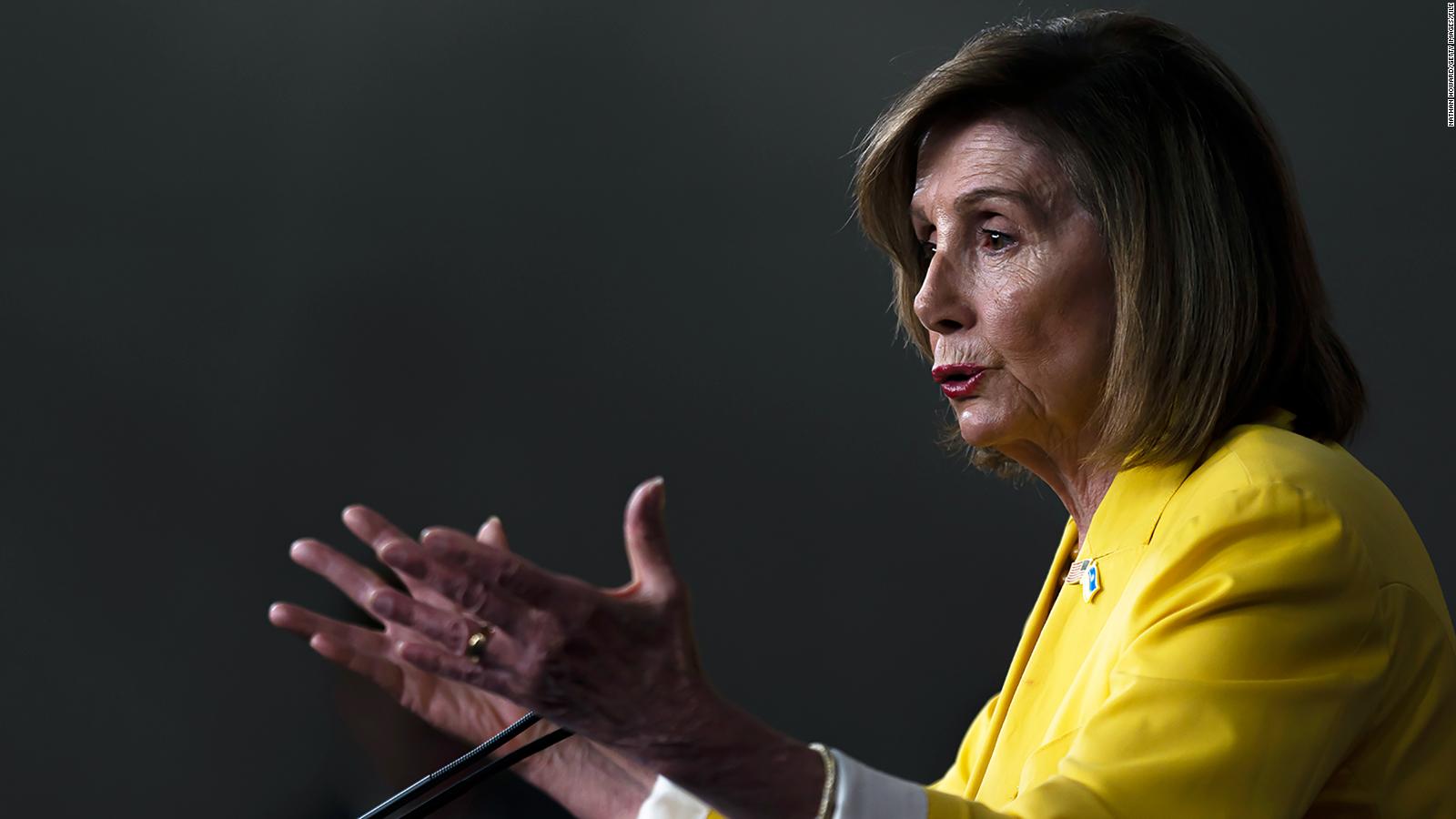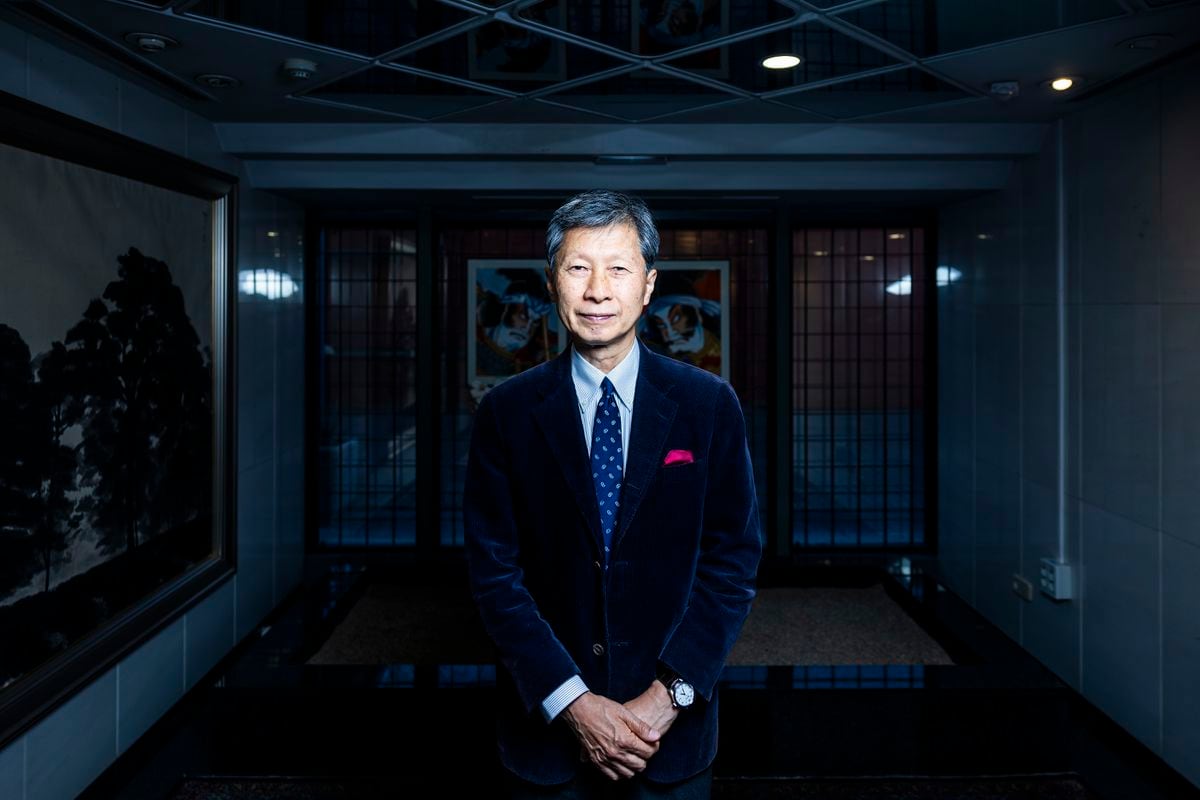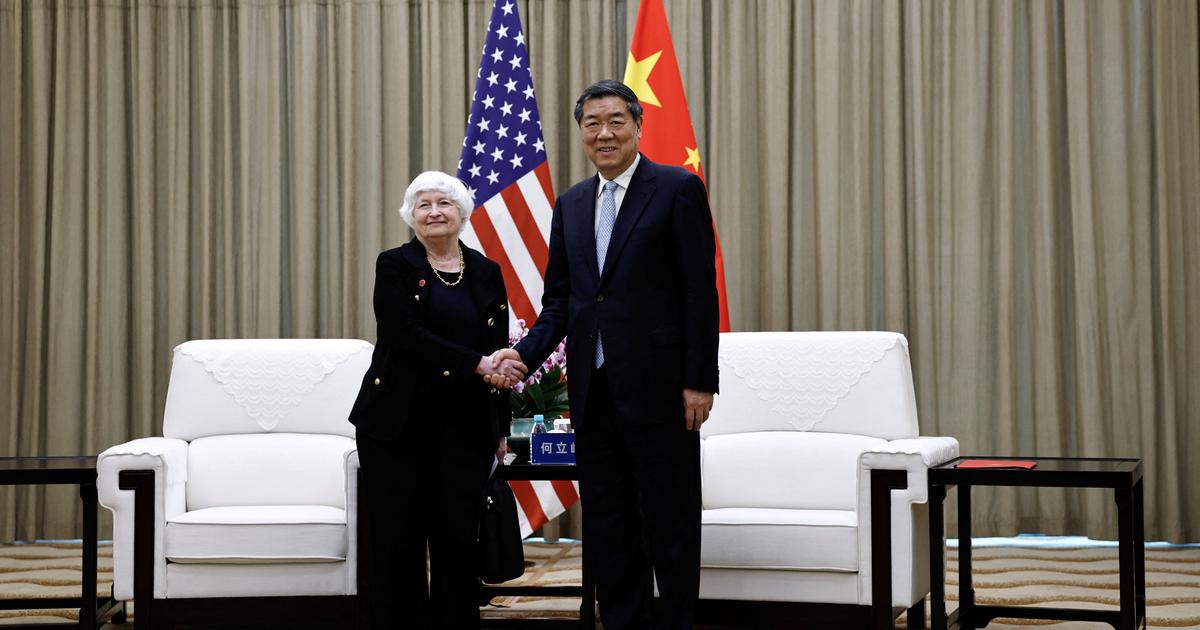What does Nancy Pelosi's visit to Taiwan mean for the Chinese government?
2:19
(CNN) --
Neither the United States nor China has an avowed interest in their nascent superpower rivalry turning into open military confrontation despite rising tensions ahead of US House Speaker Nancy Pelosi's planned visit to the United States. Taiwan.
And yet, the confrontation is over the issue that could most likely trigger a future war between the United States and China.
And Pelosi's trip, if it goes ahead, will almost certainly create further instability in the relationship that would make future conflict more likely.
Everything you need to know about the conflict between China and Taiwan: history, current events and opposing positions
China's furious warnings that the California Democrat should not go, and Washington's promises not to be intimidated, meanwhile, show how raging political forces in each nation could make it nearly impossible to manage the world's most sensitive geopolitical duel.
Why did China threaten the US?
1:00
A senior Taiwanese government official and a US official told CNN on Monday that Pelosi was expected to make the first visit by a House speaker to Taiwan in 25 years as part of her Asian tour.
The usual criticism of the Chinese communist government and its alleged human rights abuses would reach Taipei despite extraordinary warnings from Beijing about retaliation and consequences.
His position and the new conditions created by the nationalist government of Chinese leader Xi Jinping, as well as the new assertiveness and military and strategic power of Beijing, make this the most dangerous brinkmanship on Taiwan in decades.
Given signs that Pelosi is determined to make the visit, the question now is how Beijing will respond.
Most of her options, after a barrage of threats and propaganda that have raised expectations for her response, are quite alarming.
Most analysts believe some kind of show of military force is likely, at a time when China has already been sending its planes into Taiwan's air defense identification zone in unprecedented numbers.
While China's moves may not directly threaten US naval forces in the area, they could increase the potential for miscalculation, as well as Taiwan's potential response to serious provocations.
advertising
Why would Pelosi make the trip?
So why would Pelosi go and her trip unnecessarily antagonize China's leadership?
Supporters of the visit, which unusually include many Republicans aligned behind Pelosi, say it is critical that the House speaker show her support for Taiwan and stress that Washington is serious about its legal commitment to provide the island with the means for your self defense.
Pelosi is also a symbol of democracy, a way of life that Taipei is desperate to preserve under China's authoritarian shadow.
But the controversy is not limited to Taiwan.
This is in the larger context of China's building challenge to America's determination to preserve democracy, Western values, and military and economic primacy in the Pacific and around the world.
What does Taiwan think about the possibility of a visit from Nancy Pelosi?
Once news of Pelosi's expected visit leaked out, it became politically implausible, domestically and for strategic reasons, that she would bow to warnings from Beijing that she should not go.
It would be unacceptable for Pelosi, after a political career defined in part by standing up to China, to give up on her plan.
And she would send a message that the United States, in one of its first confrontations with a rival superpower with a new confidence in the Pacific, would back down.
Biden also had political considerations.
While he publicly admitted that the US military was concerned about the visit, he could not openly side with China on Pelosi.
And a president can hardly order a top representative from another branch of government what he should and should not do, even if officials tried to inform the House speaker of all the possible consequences of her decision.
Pelosi's possible trip to Taiwan raises China-US tension
2:44
Politics also drive China's actions
Politics also smolder within the Chinese politburo, although many in the West often see China's communist leadership as monolithic.
Xi built his power base on aggressive nationalism and the idea that Taiwan's destiny is "reunification" with the mainland.
He is determined to preside over a national rejuvenation that will purge China's past humiliation by colonialism and the long isolation of the 20th century when it did not exercise what he sees as its legitimate influence in the world.
So Pelosi's expected visit is more than just a jab at China;
it is a personal snub to Xi's central project by a major American politician, and that demands a political response.
The crisis also comes at a crucial time in Beijing.
In a few months, Xi is expected to seek a rare third term and cannot afford to be seen as weak.
And his government's questionable handling of the Covid-19 pandemic (mass lockdowns remain common in Chinese cities) and a slowing economy mean Xi could be tempted to take a nationalist stance to mask domestic responsibilities.
A long festering dispute
While the current standoff is alarming, Taiwan has long been an irritant in US-China relations.
The dispute is made even more confusing by complicated diplomatic deals and nuanced US strategic doctrines designed to head off the possibility of war with China.
Why is Nancy Pelosi's possible trip to Taiwan fueling tensions between the US and China?
The island is seen by Beijing as a legitimate part of its territory.
The United States recognizes the PRC on the mainland as the sole legitimate government of China and does not consider Taiwan a country.
But he does not accept the Chinese Communist Party's claim of sovereignty over the democratic island.
While offering Taiwan the means of self-defense when it buys US-made weapons, Washington has adopted a policy of deliberate vagueness about whether it will defend Taiwan, in part to deter a declaration of independence from Taipei and provoke doubts among leaders in the Beijing about a forced takeover of the island.
Robert Daly, a former US diplomat in Beijing, said Monday that China's eventual response -- perhaps, say, an incursion into Taiwanese airspace -- would likely not spark a war, but would bring rivals closer to an area the dangerous.
"That will establish a new baseline that will bring us a little bit closer to confrontation," Daly, director of the Kissinger Institute on China and the United States at the Wilson Center, told CNN's Pamela Brown.
"I don't think we'll get into a confrontation this time, but I don't think we'll be better off in our relations with Beijing a week from now than we are today."
What worries Biden about the trip
Biden has reorganized US foreign policy around the principle of countering China's growing power in Asia and beyond.
Thirty years ago, Washington hoped that by encouraging then-reclusive China to participate in the global economy, it could promote political liberalization and usher it into the Western-oriented global economic and political system.
But Beijing has tried to use its growing political and military power and influence to build an alternative political and economic value system to the one represented by the US and its allies.
But Biden also wants to manage this new competitive relationship so that it does not result in a war between the emerging power in the Pacific (China) and the existing one (the United States) and their allies.
The US leader emphasized in a phone call with XI last week that there has been no change in the fundamental nature of US-China relations or the position of the White House when it comes to Taiwan.
However, viewed from Beijing, Biden's repeated recent statements that the US would defend Taiwan, which were dismissed by his advisers, may have left the impression that he is not sincere.
China is also seeing a growing movement among hardliners in Congress for Washington to replace a policy of "strategic ambiguity" about US intentions if China invades Taiwan with a clear statement that it will defend the island.
Some analysts say such a shift could not only drag the United States into a Pacific war against China that the Americans are unprepared for, but could also make Beijing even more aggressive.
Or that the promise of an American shield could embolden a drive for independence in Taiwan that could also force China's hand and bring a broader military conflict closer to the island.
Ahead of Pelosi's anticipated visit, official statements from administration officials strongly reaffirmed that there had been no change in US policy and affirmed her right to travel, but hinted at the possibility of a difficult few weeks as China responds. in any way.
"There is no reason for Chinese rhetoric. There is no reason to take any action. It is not uncommon for congressional leaders to travel to Taiwan," White House National Security Council strategic communications coordinator John Kirby said during an appearance on CNN's "New Day" on Monday.
"We should not be, as a country, intimidated by that rhetoric or those potential actions."
But in a new statement on Monday, Zhang Jun, the Chinese ambassador to the United Nations, again warned that China's military will not "stand idly by" while Pelosi makes the visit and that her trip would have an "appalling political impact." .
The assumption in Washington is that Xi has no more interest in a direct military confrontation than Biden.
But he is stronger than previous Chinese leaders.
And there is a strong nationalist streak within the Chinese military along with a growing confidence in his ability.
So making assumptions about how China would respond to Pelosi's visit based on its behavior in past crises that have dissipated could mean the US is in for an unpleasant surprise.
Nancy PelosiTaiwan



/cloudfront-eu-central-1.images.arcpublishing.com/prisa/FIJVMOBHZRWVDBKS3NAQ2M4JRE.jpg)





